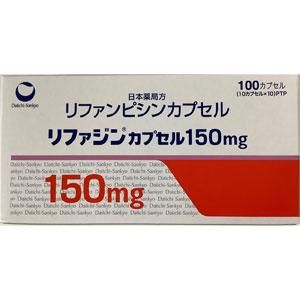Today, I want to talk to you about a commonly used medicine—Rifadin (Rifampicin) capsules. It plays a very important role in the treatment of tuberculosis and leprosy.
Many people feel that "tuberculosis" or "leprosy" is something far from them. But in fact, as long as you follow your doctor’s guidance, these diseases can be effectively controlled.
I’m here to explain this medicine clearly, so you can use it safely and with confidence.

? How Rifadin Works
The main ingredient of Rifadin is Rifampicin.
It works by blocking the RNA synthesis of Mycobacterium tuberculosis, preventing the bacteria from growing and multiplying.
Because of this, it is highly effective for treating tuberculosis, leprosy, and some non-tuberculous mycobacterial infections.
? Tip: Rifampicin is a prescription medicine. Always use it under your doctor’s guidance. Do not adjust the dose on your own.
? Indications for Rifadin
Rifadin is mainly used for:
Pulmonary tuberculosis and other forms of tuberculosis, including tuberculous meningitis and peritonitis
Leprosy, usually as part of a multi-drug therapy
Non-tuberculous mycobacterial infections, such as Mycobacterium avium complex (MAC)
? Reminder: Tuberculosis requires long-term treatment. Always complete the full course as prescribed to avoid relapse or drug resistance.
? Dosage and Administration
Adults: Take 3 capsules (450mg) once daily, or adjust according to your doctor’s instructions
Leprosy patients: Take 3–4 capsules once daily, or once every 1–2 months, as directed by your doctor
It is recommended to take Rifadin on an empty stomach before breakfast for better absorption.
? Tip: Rifampicin may turn urine, sweat, or tears reddish-orange. This is normal and harmless.
However, if you notice jaundice or other unusual symptoms, seek medical attention immediately.
⚠️ Precautions
Common side effects: Loss of appetite, nausea, vomiting, diarrhea, rash, or mild fever
Serious reactions: Yellowing of the skin or eyes, dark urine, unusual bleeding – stop the medicine and consult your doctor immediately
Drug interactions: Rifampicin can affect some medications, such as anticoagulants or anti-seizure drugs. Always inform your doctor or pharmacist before use
Special populations: Pregnant women, breastfeeding mothers, or people with liver problems must use it under medical supervision
? Reminder: Do not stop or adjust the dose on your own. Tuberculosis and leprosy treatment must follow the doctor’s instructions strictly.
✅ Summary
Rifadin (Rifampicin capsules) is a broad-spectrum antibacterial medicine. It plays a crucial role in treating tuberculosis, leprosy, and non-tuberculous mycobacterial infections.
As a pharmacist, I strongly recommend: if you have any questions about your medication, always consult your doctor or pharmacist. Safe use is the top priority.
